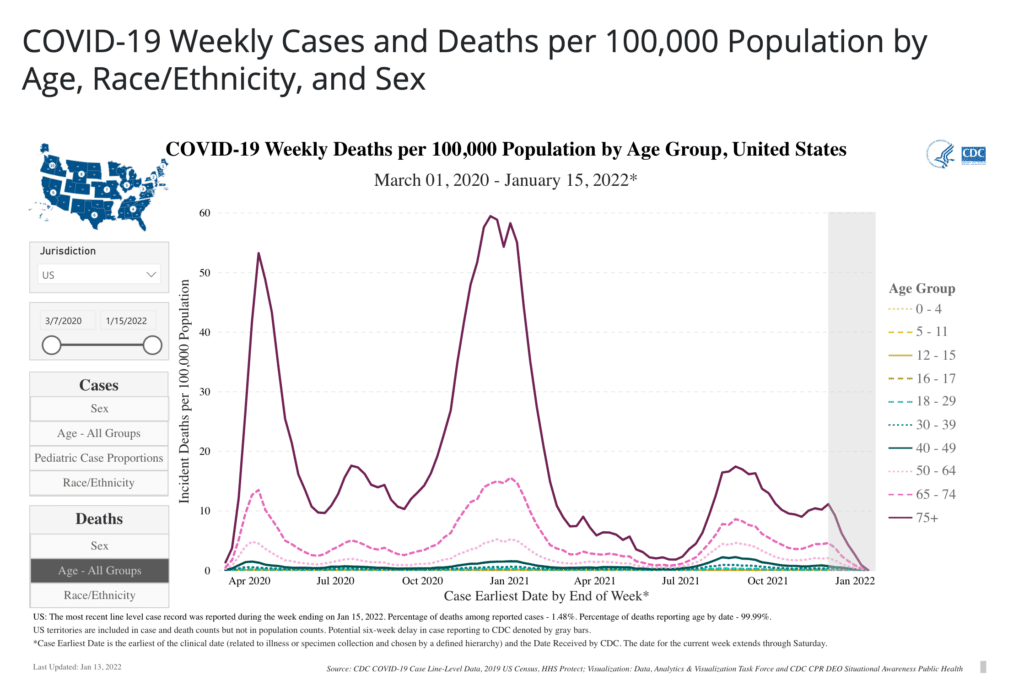Can cannabis help treat the coronavirus? Or are the countless headlines touting “marijuana breakthroughs” just a scam?
CannaMD takes a look at everything we know about cannabis and COVID-19 so far – separating science from spectacle, and highlighting key findings that might even surprise the most seasoned medical marijuana supporters.
EDITOR’S NOTE: This post is routinely updated with new information. If you’re returning for the latest study, please scroll down to “2022: New Marijuana & COVID Studies.”
Coronavirus Basics
Before we dive in, it’s important to have a firm understanding of what the coronavirus is. Commonly referred to as COVID-19, the current coronavirus is a novel (or previously unidentified) coronavirus that causes symptoms such as cough, shortness of breath or difficulty breathing, fever, chills, muscle pain, sore throat, and new loss of taste or smell. While symptoms range from mild or severe, the virus can be deadly.
The COVID-19 abbreviation stands for “corona” (CO), “virus” (VI), “disease” (D), and “2019” (19). Why does the “19” part matter? Because the disease we’re facing now isn’t the first coronavirus we’ve ever encountered.
In fact, as the Centers for Disease Control and Prevention (CDC) explains:
There are many types of human coronaviruses, including some that commonly cause mild upper-respiratory tract illnesses. COVID-19 is a new disease, caused by a novel (or new) coronavirus that has not previously been seen in humans.
While COVID-19 can be deadly, the World Health Organization (WHO) stresses that most patients experience mild cases and/or survive:
Most people who get COVID-19 have mild or moderate symptoms and can recover thanks to supportive care.
The CDC notes that individuals of all ages may contract COVID-19; however, the risk of death is significantly higher for older populations and those with underlying health conditions.
So how does COVID-19 work – and where does marijuana fit into the mix?
The Coronavirus and Cytokine Storms
Cytokine storms are about as scary and chaotic as they sound. Cytokines are a diverse group of proteins that are secreted by cells for the purpose of intercellular communication. Among other things, cytokines control cell proliferation and the regulation of immune and inflammatory responses. Defined by the National Cancer Institute, cytokine storms represent:
A severe immune reaction in which the body releases too many cytokines into the blood too quickly. Cytokines play an important role in normal immune responses, but having a large amount of them released in the body all at once can be harmful.
Researchers with Microbiology and Molecular Biology Reviews elaborate:
The term “cytokine storm” calls up vivid images of an immune system gone awry and an inflammatory response flaring out of control.
In July 2020, peer-reviewed research in Brain, Behavior, and Immunity drew attention to the role of cytokine storms in severe COVID-19 cases:
Recent reports have suggested that acute [COVID-19] infection is associated with a cytokine superstorm, which contributes to the symptoms of fever, cough, muscle pain and in severe cases bilateral interstitial pneumonia characterized by ground glass opacity and focal chest infiltrates that can be visualized on computerized tomography scans.
While a new study has shown that Tocilizumab, a drug that reduces IL-6 cytokine activity, resulted in clearance of lung consolidation and recovery in 90% of 21 treated patients, Tocilizumab isn’t without its drawbacks: potentially producing adverse side effects such as pancreatitis and hypertriglyceridemia. Which is why researchers from the University of Nebraska and the Texas Biomedical Research Institute felt it “imperative to explore effective alternative anti-inflammatory strategies.”
And their alternative strategy of choice? Marijuana cannabinoid, CBD.
CBD: Cytokine Storm Fighter
Noting that CBD has shown “beneficial anti-inflammatory effects in pre-clinical models of various chronic inflammatory diseases and is FDA approved for seizure reduction in children with intractable epilepsy,” the study authors outline a list of arguments in favor of COVID-19 CBD treatment:
1) In a mouse model of acute lung injury, a 2015 study found that CBD decreased lung inflammation, potentially through the inhibition of proinflammatory cytokine production by immune cells and suppression of over-excited immune responses.
2) A 2020 study found that CBD can inhibit the production of proinflammatory cytokines that have been associated with SARS-CoV2 induced multi-organ pathology and mortality. (SARS-CoV2 is the virus that causes COVID-19.)
3) In 2019, researchers found that CBD reduced proinflammatory cytokine production, airway inflammation, and fibrosis in a mouse model of chronic asthma.
Perhaps most importantly, researchers note that CBD can achieve its cytokine-storm-fighting results without negative side effects:
CBD can effectively inhibit the JAK-STAT pathway including the production and action of type I interferons without leading to addiction, alterations in heart rate or blood pressure and adverse effects on the gastrointestinal tract and cognition.
Unlike THC, CBD has a high margin of safety and is well tolerated pharmacologically even after treatments of up to 1500 mg/day for two weeks in both animals and humans, which suggests its feasibility to reduce SARS-CoV2 induced lung inflammation/pathology and disease severity.
However, while CBD has been getting most of the attention, a lesser known compound is slowing taking center stage.
Terpenes and CBD: Twice as Effective
In April 2020, top Israeli cannabis research and development firms, Eybna and CannaSoul, collaborated to customize Ebyna’s NT-VRL terpene formulation to “optimize its anti-inflammatory and anti-viral properties.” Working quickly, the firms revealed initial results four months later:
The early results from the study show that the terpene formulation combined with CBD is twice as effective than CBD alone, and [more effective than] a common corticosteroids treatment for inflammation, Dexamethasone.
The study, conducted on human peripheral blood mononuclear cells from healthy donors, induced inflammation and performed cytotoxicity tests prior to a cytokine storm experiment to ensure cell viability in the testing concentrations. The compounds were tested individually as well as in combination, where their percentage of cytokines inhibition was compared to the positive control. The findings revealed that the addition of CBD with the Eybna NT-VRL formulation provided the highest inhibition of cytokines.
According to Ebyna co-founder and CEO, Nadav Eyal:
The preliminary results were highly positive. Demonstrating significant anti-inflammatory activity of terpenes and breaking the perception that terpenes are just flavorings and fragrances compounds with a placebo effect.
While future research is needed, the present study opens up a new landscape for marijuana research – focusing on terpenes just as much as cannabinoids.
Could Marijuana Prevent COVID-19?
COVID-19 demonstrates fast human-to-human transmission and, like other respiratory pathogens, may be transmitted through respiratory droplets. According to the CDC:
The virus that causes COVID-19 is thought to spread mainly from person to person, mainly through respiratory droplets produced when an infected person coughs, sneezes, or talks. These droplets can land in the mouths or noses of people who are nearby or possibly be inhaled into the lungs. Spread is more likely when people are in close contact with one another (within about 6 feet).
But that’s just the beginning. Let’s dig a little deeper into what’s actually happening during COVID-19 transmission.
In a working draft (published in the April 2020 edition of Preprints), Canadian researchers explain:
Currently, there is a global pandemic of COVID-19 disease caused by the SARS-CoV2 zoonotic coronavirus […] It is now well accepted that angiotensin-converting enzyme II (ACE2) is the cell receptor of SARS-CoV2 and the main route for receptor-mediated entry of the virus into the human host.
Translation?
Cells that express a particular enzyme called ACE2 are critical viral gateways – meaning these gateways are where the virus “gets in.” ACE2 is expressed in lung tissue, as well as oral and nasal mucosa, kidney, testes, and the gastrointestinal track. Therefore, altering levels of ACE2 could, as researchers put it, “prove a plausible strategy” for decreasing disease susceptibility:
Numerous studies have reported high levels of ACE2 in the lower respiratory tract, and higher levels of ACE2 expression, such as those seen in smokers and patients with chronic obstructive pulmonary disease (COPD), were associated with higher COVID-19 predisposition and more severe disease.
But what does marijuana have to do with ACE2?
As the study authors acknowledge:
Cannabis sativa, especially one high in the anti-inflammatory cannabinoid cannabidiol (CBD), has been proposed to modulate gene expression and inflammation and is under investigation for several potential therapeutic applications against cancer and various inflammatory diseases.
Working under a Health Canada research license, scientists involved with the study developed over 800 new cannabis lines and extracts, as well as a method of using them to regulate gene expression and molecular cascades that drive inflammation and other vital cellular processes.
And then something interesting happened:
Serendipitously, we noted that cannabis may also affect ACE2.
Hypothesizing that high-CBD cannabis extracts may be used to modulate ACE2 expression in COVID- 19 target tissues, researchers went to work. Using artificial human 3D models of oral, airway, and intestinal tissues, the team was met with success:
We identified 13 high-CBD cannabis extracts that modulate ACE2 gene expression and ACE2 protein levels.
Our initial data suggest that some C. sativa extract down-regulate serine protease TMPRSS2, another critical protein required for SARS-CoV2 entry into host cells.
While our most effective extracts require further large-scale validation, our study is crucial for the future analysis of the effects of medical cannabis on COVID-19.
Writing that “the extracts of our most successful and novel high-CBD C. sativa lines, pending further investigation, may become a useful and safe addition to the treatment of COVID-19 as an adjunct therapy,” researchers suggest that such extracts might be used to develop preventative treatments in the form of mouthwash and throat gargle products for both clinical and at-home use.
The study concludes:
The observed down-regulation of ACE2 gene expression by several tested extracts of C. sativa is a novel and crucial finding.
Our results lay a foundation for further in-depth analysis of the effects of C. sativa on the molecular etiology and pathogenesis of COVID-19, as well as other viral diseases in which viruses use the ACE2 receptor as a molecular gateway.
Note: Study extracts were applied via media. Application was intended to model medical delivery, such as local mouthwash applications, encapsulated extracts and dosed oils, and inhalers or nebulizers. Therefore results cannot be extrapolated to the effects of cannabis smoking.
Study authors also add a word of caution:
In light of recent findings that tobacco smoking increases ACE2 levels and exacerbates clinical outcomes of COVID-19, the effects of cannabis smoking on the levels of ACE2 expression should be carefully investigated.
While it’s important to remember that this study is still in working draft and has not yet completed the peer-review process, the current results suggest a promising future for marijuana’s role in preventative care.
2022: New Marijuana & COVID Studies
January 10, 2022: The Journal of Natural Products published a study finding that hemp (known scientifically as Cannabis sativa) possesses the ability to prevent the virus that causes COVID-19 from entering human cells.
Researchers, led by Richard van Breemen of Oregon State, found that a pair of cannabinoid acids – known as CBDA and CBGA (which serve as precursors to cannabinoids CBD and CBG) – bind to the SARS-CoV-2 spike protein, blocking a critical step in the process the virus uses to infect people.
According to van Breeman:
These cannabinoid acids are abundant in hemp and in many hemp extracts […] and have a good safety profile in humans. And our research showed the hemp compounds were equally effective against variants of SARS-CoV-2, including variant B.1.1.7, which was first detected in the United Kingdom [known as the alpha variant], and variant B.1.351 [i.e., the beta variant], first detected in South Africa.
Elaborating, van Breeman explains:
Any part of the infection and replication cycle is a potential target for antiviral intervention, and the connection of the spike protein’s receptor binding domain to the human cell surface receptor ACE2 is a critical step in that cycle. That means cell entry inhibitors, like the acids from hemp, could be used to prevent SARS-CoV-2 infection and also to shorten infections by preventing virus particles from infecting human cells. They bind to the spike proteins so those proteins can’t bind to the ACE2 enzyme, which is abundant on the outer membrane of endothelial cells in the lungs and other organs.
As the researchers write:
One of the primary concerns in the pandemic is the spread of variants, of which there are many, and B.1.1.7 and B.1.351 are among the most widespread and concerning. These variants are well known for evading antibodies against early lineage SARS-CoV-2, which is obviously concerning given that current vaccination strategies rely on the early lineage spike protein as an antigen. Our data show CBDA and CBGA are effective against the two variants we looked at, and we hope that trend will extend to other existing and future variants.
Suggesting that the combination of vaccination and CBDA/CBGA treatment “should make for a much more challenging environment for SARS-CoV-2,” the present study adds to a growing body of literature supporting the role of cannabis in addressing the COVID-19 pandemic. However, as Dr. Rachel Knox succinctly notes:
This research is specific to the acidics, CBGA and CBDA in particular. People aren’t smoking acidics. You’d need to consume them pre-decarboxylated raw/fresh or stabilized in a capsule or tincture.
Important Reminders
As with all coronavirus studies, COVID-19 and cannabis research is still in the preliminary stages. Broader research and human trials are needed. The research reviewed in this post is intended for educational purposes only. Although various possibilities are being explored, at the time of publication, scientific literature does not support the use of medical cannabis as a therapy for the prevention and/or treatment of COVID-19.
Questions about medical marijuana? Give CannaMD a call at (855) 420-9170. Our board-certified doctors are always available to help!
Need Your Florida Medical Marijuana Card?
Fill out an easy online application or speak with a CannaMD physician today at (855) 420-9170!
To stay up-to-date with the latest studies and legal regulations surrounding medical marijuana treatment, be sure to follow CannaMD on Facebook and sign up for our newsletter, below!
Join 100k+ Subscribers!
Get updates on more posts like this!


